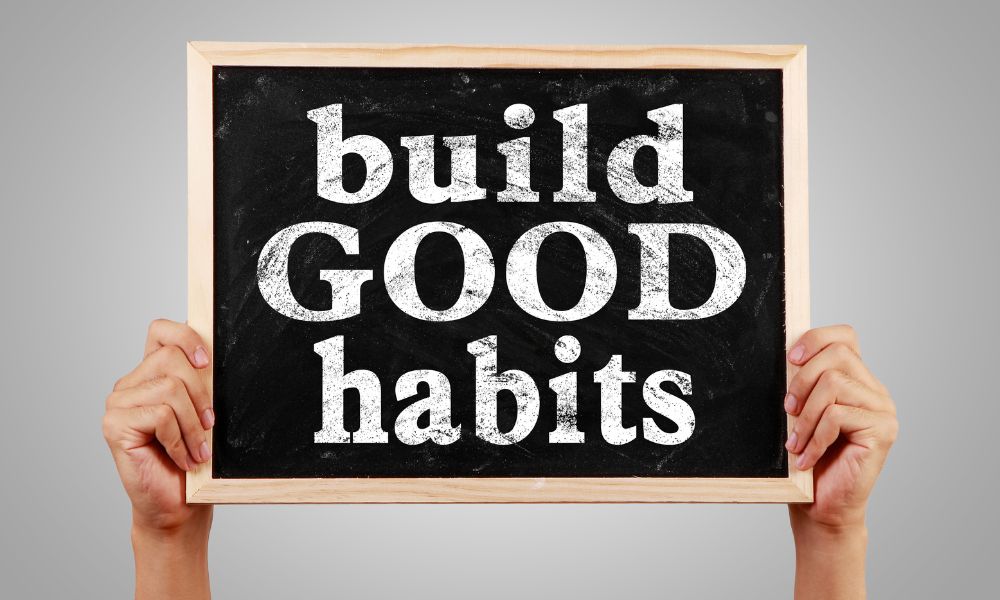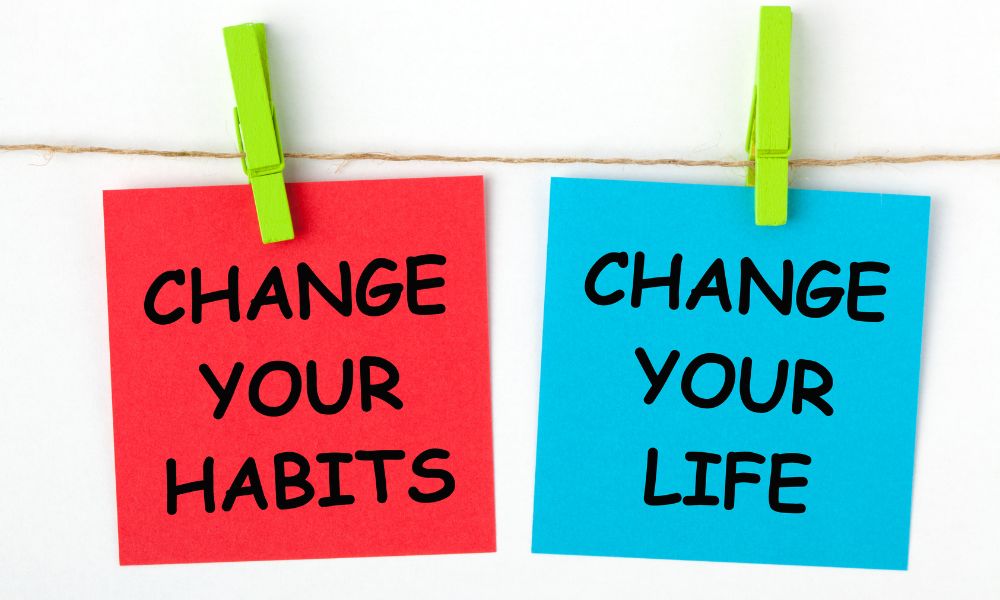
16 Feb Atomic Habits: 3 Tips for Your Habit-building Framework
ATOMIC HABITS: 3 TIPS FOR YOUR HABIT-BUILDING FRAMEWORK

Atomic Habits: How Do Habits Work?
Habits can make you or break you. That is, they are easy and difficult at the same time. Almost all of us want to get better at something. Be it our profession, management skills, or even forming healthier relationships. Regardless of what we aim to improve – it all comes down to making habits work for us.
So let’s scratch the surface first. A habit is any behavior that has become routine over time. It can be something we do consciously or unconsciously – daily tasks or big ones that stem from our identity. Learn the 4 principles of behavior change.
They could be behaviors like spending money, smoking cigarettes, or playing video games for too long. These could be small tasks like brushing your teeth every morning or bigger goals such as building a stronger body through workouts.
Now let’s have a look at three tips on how habits work.
#1: Set your goals straight and tap into your process
Habits are different for everyone.
Good or bad – everybody has habits. So it goes without saying that they look and feel different for everyone. But more often than not, they are made up of two components:
- Goal: What you want to achieve.
- System: How you achieve the goal.
You can view systems as processes that look different for everyone. It’s similar to how some people learn better with visuals, whereas others learn more efficiently with auditory cues.
Suppose you want to become a better badminton player. Your key strength is that you are good at moving back and forth. However, you tend to miss the shuttlecock now and again. You’d need to improve your hand-leg-eye coordination, but it’ll take practice to do that.
So your habit system would be fine-tuned exclusively for your lifestyle:
- What are your strengths and weaknesses?
- Put your key strengths into play to build on your weak points.
- The number of times you feel comfortable practicing the activity.
- A rough layout of daily, weekly, and monthly schedules.
Stay true to your system once you have it figured out. Consistency is key to forming habits; doing regular tasks becomes second nature.
Bonus tip: Don’t be hard on yourself. Enjoy the process, and results will begin to emerge eventually. Only you can understand how much you can handle while not putting your mental and physical health at stake.

#2: Baby steps are key to breaking or building a habit
Nothing big happens overnight – but even a little bit is enough.
Having too much on your plate can take away the thrill of the habit. If you want to become a better chess player, learn a trick or two and then apply it in the game. You’d find a million tips for any task, hobby, or action out there, but using them one by one and amplifying each is what will make you better.
- Break down your day into time chunks.
- Identify triggers that help you follow the schedule more properly (e.g., a clear space can motivate studying without distractions, a well-organized art studio means more focused painting, etc.)
- Don’t do more than what you’ve assigned for the day (avoid burnout as much as possible).
Having too much on your plate can lead to massive burnout. For instance, it might work if you want to pull off an all-nighter for your art history exam, but you’ll feel worn out by the morning. A better shot at studying more effectively is breaking down the syllabus and starting earlier with shorter daily sessions.
Bonus tip: Keep a habit tracker to check your achievements for the day or particular time slot- 8 Best Habit Trackers.

#3: Align your identity with your habits
Habits can be subjective.
Tapping into self-knowledge is key to building or breaking a habit. And building habits around your identity are known as identity-based habits. This approach is different because it’s not entirely based on the end goal but also considers your beliefs.
Have a look at the following identity types for more clarity:
- Cultural identity
- Professional identity
- Political identity
- Religious identity
- Gender identity
- Disability identity
Below are a couple of pointers that can help you out:
- What is your self-image? Describe yourself in a few words.
- Which of the above identities is the most important to you?
- Do you feel energized or drained by a particular activity?
Take a few moments to write down what you believe about yourself. Examine your current habits and how the subconscious might be influencing them. Some common influences include educational background, the social structure of the home country, and much more.
Bonus tip: Strike off things that don’t align with your current personality.
Takeaway: Look within yourself to identify the habit framework
Be clear about your identity. What is your end goal, and how does it contribute to your self-image? Once that’s done and sorted, figure out a process that works just for you. And don’t forget to take baby steps – one day at a time with consistency and repetition every day is the ultimate payoff.
Good habits contribute positively to our lives and help us stay motivated and focused on achieving goals. Bad habits may seem harmless at first but can quickly take over our lives if not kept in check. To categorize each activity or task’s effects, you’ll have a better picture of areas to improvise.
Check Our Our Other Blogs:
References:
Creating a Habit System
https://www.freecodecamp.org/news/create-a-habit-system-and-stay-motivated-as-a-developer/
Baby Steps to Building Better Habits
https://students.ubc.ca/ubclife/baby-steps-building-better-habits
Types of Identity
https://en.wikipedia.org/wiki/Identity_formation
Identity-based Habit Building
https://www.frontiersin.org/articles/10.3389/fpsyg.2019.01504/full
Habit and Identity: Behavioral, Cognitive, Affective, and Motivational Facets of an Integrated Self
https://www.ncbi.nlm.nih.gov/pmc/articles/PMC6635880/
Craig Selinger
Latest posts by Craig Selinger (see all)
- Psychotherapy and Support Services at Cope With School NYC - April 12, 2024
- NYC Parents of Teens Support Group - April 8, 2024
- Here I Am, I Am Me: An Illustrated Guide to Mental Health - April 4, 2024


No Comments